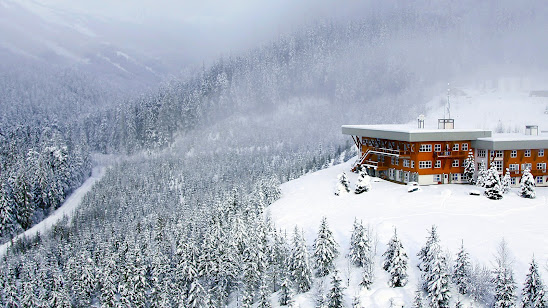Interview with Dr Simon Hudson, author of the new book COVID-19 & Travel published in July.
Simon, you recently published a book on COVID-19 and Travel written during lockdown last spring. What insight does this book give into the lessons the travel industry can learn from this crisis?
"First of all, the crisis has highlighted how the tourism and hospitality sector is particularly vulnerable to ‘uncontrollable’ events, and for some destinations or sectors that were over-dependent on tourism, the pandemic has been a wake-up call. We have already seen some destinations recognizing the need for a more diversified economy in order to weather the ups and downs of tourism – Barbados and Portugal, for example, targeting long-stay digital nomads to replace tourists. This could also extend to ski areas once travel restrictions are relaxed as already there has been an uptick in demand to move to the mountains from the domestic market.
Secondly, what the crisis has also shown is that businesses in the travel sector must be willing to adapt and change their business models in order to survive. I call this ‘COVID-aptability’, and it will be a crucial management skill moving forward. Many organizations did pivot successfully during lockdown: restaurants focused on takeout and delivery for income; commercial airlines flew critical medical supplies and other cargo around the world; and hotels supported the pandemic by providing overflow capacity for hospitals, or by offering people a facility to self-isolate and protect their families. Now many hotels are offering business space for those who are stir-crazy from working in the tight – or noisy – confines of home. However, as travel restrictions ease, organizations will have to consider how they can adapt to the next stage of the pandemic – one characterized by an emphasis on health and safety, technology, lower numbers, and a low-touch economy.
Related to this, it is important to recognize that we are not going back to normal. The pandemic has changed us all, and the traveler of the future will be more cautious than before, and the public health conditions and hygiene standards of destinations and tourist sites will become a top priority. Travelers will be booking last-minute, taking more staycations, and exploring opportunities for domestic rather than foreign adventures – so target markets may have to change. We may also see an increased demand for health and wellness travel, wilderness trips, private accommodation, and visiting national parks and wilderness areas.
Another insight is that destinations and organizations that have kept open lines of communication during the crisis are likely to recover faster than others (most cut their communications budget), having communicated to consumers the image of corporate stability during challenging times, and maintained or even increased ‘share of mind’. One excellent example was Zermatt in Switzerland, whose tourism authority took a creative but relevant approach to keep their destination top of mind by projecting one by one the flags of different countries on to the iconic Matterhorn mountain every night during lockdown as a display of solidarity with others. The campaign generated a considerable amount of media and social media worldwide, reaching over 700 million people.
Finally - some destinations might benefit from a ‘halo effect’ resulting from the positive media they have received in dealing the crisis and for being perceived as relatively ‘COVID-free’ after taking a predominantly health rather than wealth stance in combatting the spread of the virus. New Zealand, the South Pacific, Vietnam, Portugal and Iceland, for example, may move to the top of the list of ‘desired destinations’ for many travelers (and places to live). They may have prioritized the pandemic over short-term profit but there may be a positive long-term economic impact of this strategy if they are able to bounce back quicker than other countries. And from a PR point of view, they have all enjoyed largely positive media coverage since last spring. Those countries which have closed their borders for most of 2020 (and continuing possibly into 2021) may also benefit from pent-up tourism when they are eventually open to all" - Dr Simon Hudson
Also, check out this signature Travel Weekly review of COVID-19 & Travel:
https://www.travelweekly.com/Arnie-Weissmann/The-pandemics-Book-of-Genesis
If you would like to read more of Dr Hudson's insightful, timely tome, here’s a special 20% discount just for you on the eBook, e-chapters and the printed version: https://www.goodfellowpublishers.com/academic-publishing.php?promoCode=&partnerID=&content=story&storyID=443 - You just need to enter the code covid19disc at checkout for the discount to be deducted.
My latest article published in Ski Luxe Magazine:

